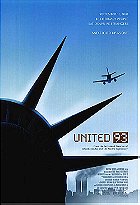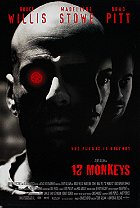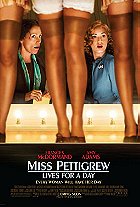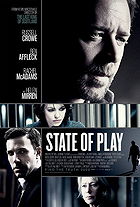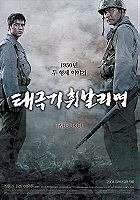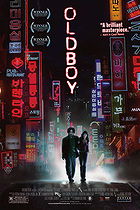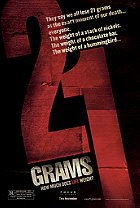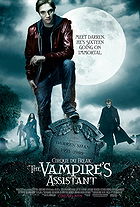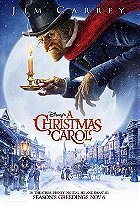Astronaut Sam Bell has a quintessentially personal encounter toward the end of his three-year stint on the Moon, where he, working alongside his computer, GERTY, sends back to Earth parcels of a resource that has helped diminish our planet's power problems.
Sam Rockwell: Sam Bell
Just two years ago I was immersed, impressed and tantalized by Danny Boyle's shimmering spectacle Sunshine which provided human drama and resulted in being an intense thrill of a rollercoaster. Two years later Duncan Jones releases Moon; a low budget, human drama, set out in space featuring Sam Rockwell(Frost/Nixon); whom happens to be one of the under-rated actors in film today. All of these attributes should mix perfectly to create a film that's highly emotive, beautifully acted and a sight to behold but is this moon landing a giant leap, or just a small step?

An astronaut miner extracting the precious moon gas that promises to reverse the Earth's energy crisis nears the end of his three-year contract; makes an ominous discovery in this psychological sci-fi film; also featuring the voice of Kevin Spacey as computer robot assistant GERTY.
For three long years, Sam Bell has dutifully harvested Helium 3 for Lunar; a company that claims it holds the key to solving mankind's energy crisis.
As Sam's contract comes to a close, the lonely astronaut contemplates returning to his wife and daughter down on Earth, where he will retire early and attempt to make up for lost time. His work on the Selene moon base has been enlightening; the solitude helping him to reflect on the past and overcome some serious anger issues...but the isolation is starting to make Sam uneasy. With only two weeks to go before he begins his journey back to Earth, Sam starts feeling strange: he's having surreal visions, and hearing disjointed sounds.
Let's state the obvious: Moon looks sublime. Similarly to Danny Boyles Sunshine, this low budget spectacle uses effects to enhance the story rather than eclipse it. Mix with some harrowing shots of the environment and you've got a film that dually looks fantastic and, thanks to Clint Mansell's(The man behind the scores of Requiem for a Dream & The Fountain) superb score, Moon sounds great, and unlike the moon itself, atmospheric.
Sam Rockwell is a versatile actor, his range is absolutely phenomenal. One moment he is relaxed and friendly the next he's ready to pummel you into submission in a fit of angry temperament...but let's not spoilt the faceted performance.
This is an Oscar worthy performance from Sam!
My only major discrepancy with Moon was with Kevin Spacey as GERTY(A distant relative to HAL maybe from 2001?) whom does a exquisite job, but sometimes distracts you from the realism that the film strives for. However, all of these elements merge; displaying some fantastic glossy sci-fi. It's the story and the direction that leads me to believe that this is among the greatest films of 2009.
The story is told at a steady pace. The film never compromises and the pacing feels organic, and its this slow pacing that helps generate that feeling of isolation. The filmmakers cleverly, never relent from showing you a deserted hallway; calling it eerie or uncomfortable is a severe understatement. So much so that once the film decided to give us answers you're so involved they seem personal not just to Sam but to us the audience as well. Moon never strays from pulling on your emotions; a phone call to earth makes for one of the most emotional moments of the piece. You might not contemplate that Moon is indeed the sun of this year, indeed Sci-fi is not everyones cup of tea...yet Moon is addictive to any audience; simply because it is not just a sci-fi piece. It's a drama and a story about moralistic questioning...Is cloning humane? or cruel? Is isolation or being alone maddening in time? Can robots have empathy and friendship with humans? Moon is a long list of questions and deep discussion.
Overall, Moon is a faceted diamond in so many regards; it replicates Si-Fi in a way not seen since Alien, Blade Runner or 2001: A Space Odyssey. The direction is methodical, clinically precise mixed seamlessly with the multitude performance of Sam Rockwell. An eerie, disturbing and moving story, but not without occasional bursts of humour(''I'm cold''...''you're sitting under the fridge''), Moon is a refreshing antidote to the unintelligent action-orientated futuristic pieces which has dominated cinemas in recent years. For these reasons alone Moon takes it's place, as one of the highlights and deepest films/stories of 2009.
Simply put: Moon is a radioactive tampon, which will Rockwell your World, so definitely check it out.
 Login
Login
 Home
Home 24 Lists
24 Lists 448 Reviews
448 Reviews Collections
Collections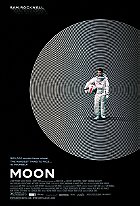
 0 comments,
0 comments, 